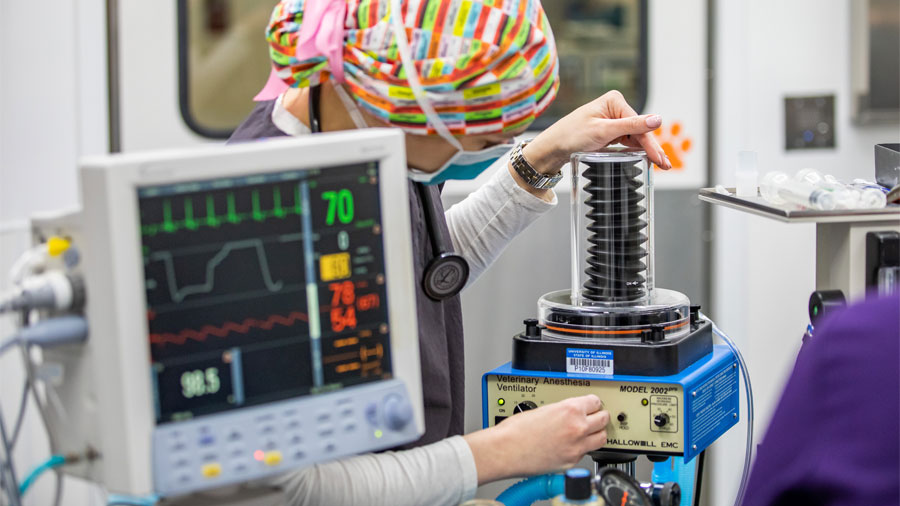Veterinarians routinely recommend nutraceuticals for their patients, with one survey finding that half or more do so. But what are nutraceuticals?

Dr. Alex Gochenauer, a veterinary pharmacist at the University of Illinois Veterinary Teaching Hospital in Urbana, sheds some light on the issue. Nutraceuticals are products that are food or are made from food and that provide medicinal or health benefits. It is important to recognize that a nutraceutical is not the same as a prescription or even an over-the-counter medication.
Nutraceuticals commonly used in conjunction with traditional veterinary medicine approaches include omega-3 fatty acids to help support the heart, joints, coats, and skin of dogs. Glucosamine and chondroitin are used to promote joint health and alleviate symptoms of joint damage in osteoarthritis.
In cats, the amino acid lysine is often used for clinical signs associated with feline herpes virus infection and a supplement containing white petrolatum, light mineral oil, and soybean oil has been shown to be beneficial for hairballs.
Are Nutraceuticals Safe?
Since nutraceuticals are not classified as drugs, the Food and Drug Administration (FDA) does not have the authority to approve the safety, efficacy, or label claims of nutraceuticals that are sold to the public. Therefore, there is no official process for checking the safety, effectiveness, or labeling of these products. This means that the product you buy may not contain the desired ingredient or even be safe for your pet!
So how can you choose a quality nutraceutical product? According to Dr. Gochenauer, one way is to check whether the manufacturer is a member of the National Animal Supplement Council (NASC), which sets standards to ensure consistent quality, labeling, and advertising. Companies that meet the NASC standards are listed online as a member, and their products considered generally safe.
Choose Products Designed for Pets
Dr. Gochenauer says another way to ensure a nutraceutical is a quality product is by choosing one made by a veterinary company. “Products claiming to specifically benefit patients and prevent disease are generally safe if they have been tested by a veterinary pharmaceutical company,” Dr. Gochenauer says. She says the FDA’s Center for Veterinary Medicine has specific guidelines for nutritional supplements marketed for companion animals, and responsible manufacturers and distributors adhere to those guidelines
Pet owners should look for products marketed for pets, rather than give their pet a product marketed for people. Many human nutraceuticals contain ingredients such as garlic or flavonoids, substances believed to help reduce inflammation for people, but which are highly toxic to dogs. The dosages appropriate for human products also differ from those in veterinary products. For example, vitamin D is not toxic in people unless enormous amounts are consumed. However, dogs are much more sensitive to vitamin D and can experience toxic side effects at much lower doses.
Do Your Research
What does all of this information mean for your pet? When adding a nutraceutical to your pet’s routine care, make sure you consult with your veterinarian and do your research with an organization such as NASC. If a nutraceutical product is recommended by your veterinarian, it is likely that product is dosed appropriately for your animal and has proven health or medicinal benefits.
Nutraceuticals have proven to be effective when paired with traditional prescription medications and can help increase your pet’s quality of life.
By Alaina Lamp




